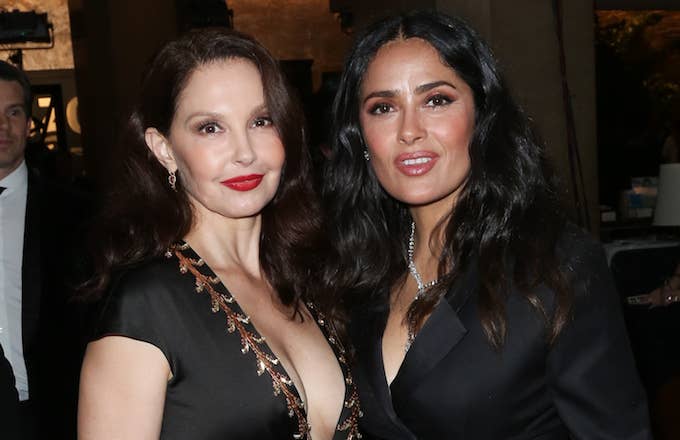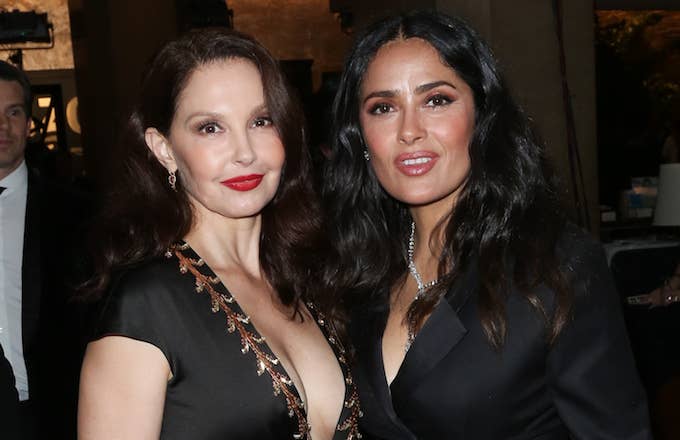
As one of the first women to publicly come out against Harvey Weinstein, Ashley Judd positioned herself among the leading voices of the #MeToo movement. The actress is no stranger to advocacy work, especially within the realm of women’s rights. On Thursday, longtime friend Salma Hayek interviewed Judd for Town & Country Magazine about why she decided to come forward when she did and her galvanizing role in the #MeToo movement. Hayek also spoke out against Weinstein in harrowing accounts for both The New York Times and Vanity Fair.
When the New York Times story detailing the first in a cascade of accusations against Weinstein first broke, Judd says, “I didn’t feel afraid. But remember, I’ve told this story from literally the moment I left that hotel room with Harvey. My dad was with me that day, and he could tell by the look on my face, to use his words, that something devastating had happened, and I told him. And both the producer and director of Kiss the Girls said recently that when I went to the set that night, I told them what had happened. I’ve been telling this story—but the seismic shift is that now everyone is willing to hear it. The tweak was naming Harvey, and I felt comfortable doing that.”
Hayek admittedly “chickened out” at first when Judd approached her about sharing her encounter with the disgraced mogul for the article. But as Judd notes in the interview, “I think that ultimately the timing of the article you wrote about your experience and the way you wrote it were perfect and poetic, the way it was meant to be. It reignited the movement.” Hayek says that if it weren’t for Judd’s “loving hand,” she wouldn’t have been able to tell her story.
Hayek also asked Judd if she thought “such terrible behavior ever warranted forgiveness,” to which Judd replied: “Forgiveness, first of all, implies that I’ve judged someone, and that’s not a really healthy and appropriate place for me to be. I can certainly evaluate, but I guess the distinction I’m making is that condemnation is really not an energy that I want to keep inside of myself. Forgiveness just cuts those things—I can prosecute and forgive at the same time.” Word.

